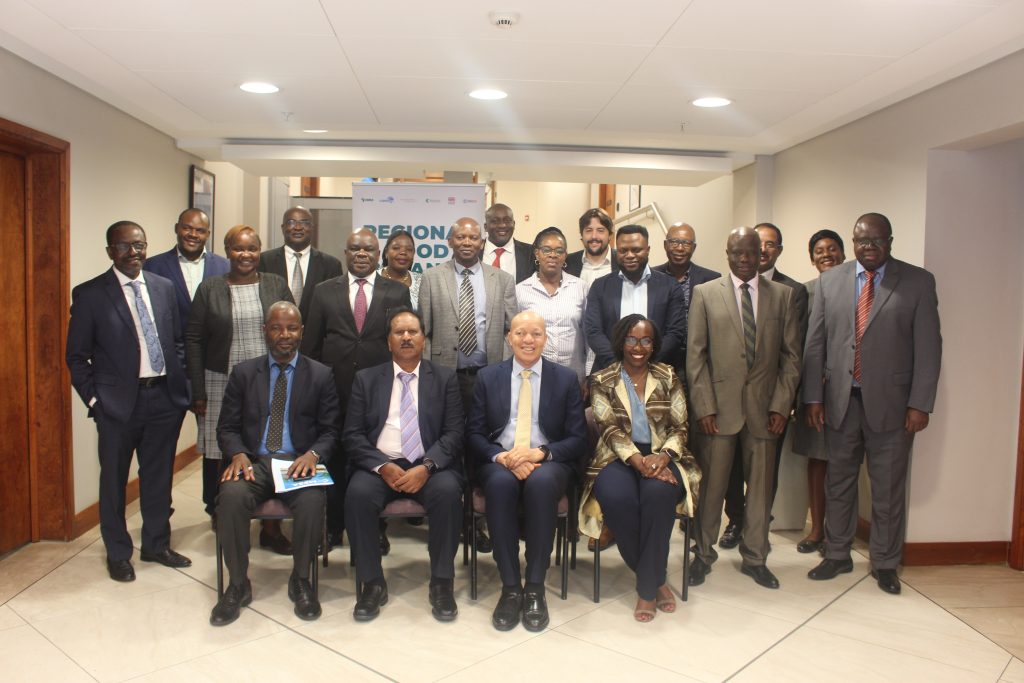
Senior Government officials from the Ministries of Agriculture in Kenya, Malawi, Rwanda, Tanzania, Uganda and Zambia and representatives of key regional private sector associations that make up the Committee of the Regional Food Balance Sheet (RFBS) Initiative have convened in Lusaka, Zambia for a meeting to advance stakeholders ownership and governance of the RFBS.
The three-day meeting will play a crucial role in providing strategic direction and guidance to the RFBS effort which aims at strengthening agri-food data/ information system in the COMESA-EAC-SADC region.
Speaking at the launch of the committee on Tuesday 14 March 2023, COMESA Assistant Secretary General for Administration and Finance Dr Dev Haman said the Secretariat will play a lead role in the governance of the RFBS initiative, bring together senior decision makers, lead outreach efforts and garner buy-in from key public and private actors.
The Secretariat will also facilitate inclusive data sharing within and among the key actors as well as facilitate engagement on the necessary policy reforms based on RFBS outputs.
“COMESA Secretariat therefore calls upon you to use your expertise, positions, and influence to support the operations of the RFBS Committee in driving and sustaining the implementation of the RFBS initiative in the region,” Dr Haman said.
He added that there will be need for deliberate efforts to ensure that the data/information needs of the key stakeholders/end-users including women and youth in the region are adequately addressed.
COMESA Secretariat in collaboration with the Alliance for a Green Revolution in Africa (AGRA) and a couple of technical and technology partners, is implementing the RFBS which was jointly launched in September 2022.
So far, progress has been recorded in the implementation of this initiative with the support from the six pilot countries.
The RFBS initiative aims to accelerate the application of digital, remote sensing, and advanced analytical technologies to provide data and forecasts on production, trade, prices, stocks, and consumption for major food commodities in the Eastern and Southern Africa region.
This data will inform policy and business decisions on food security, agricultural trade as well as investment. For example, in showing food surplus and deficit areas, the RFBS provides a signal to private traders, millers, and other aggregators to inform when and where to source and where to ship food commodities.
Speaking at the same function, Chief Agriculture Economist in Zambia’s Ministry of Agriculture Mr Bernard Mumba urged the committee to actively participate in the deliberations and contribute to having a food balance sheet that will effectively serve the region.
He added that the RFBS is crucial for the region and governments, the private sector, and other stakeholders need to be open and share relevant data to enable evidence-based policy, business, and investment decisions for inclusive socio-economic development.
Alliance for Green Revolution in Africa (AGRA) who are co-leading in the implementation of the RFBS commended COMESA for driving the process and taking up the leadership role to ensure that the Initiative is fully implemented.
AGRA Vice- President for Policy and Capability, Dr Apollos Nwafor described the Initiative as “an African solution to an African problem which all countries should embrace as their own and ensure that it works.”
Partners attending the meeting include AGRA, the Eastern Africa Grains Council (EAGC), the Southern Africa Federation of Agricultural Unions (SACAU), the Eastern Africa Farmers Federation (EAFF), the Regional Centre for Mapping of Resources for Development (RCMRD), the COMESA Business Council (CBC) and TETRA TECH.

